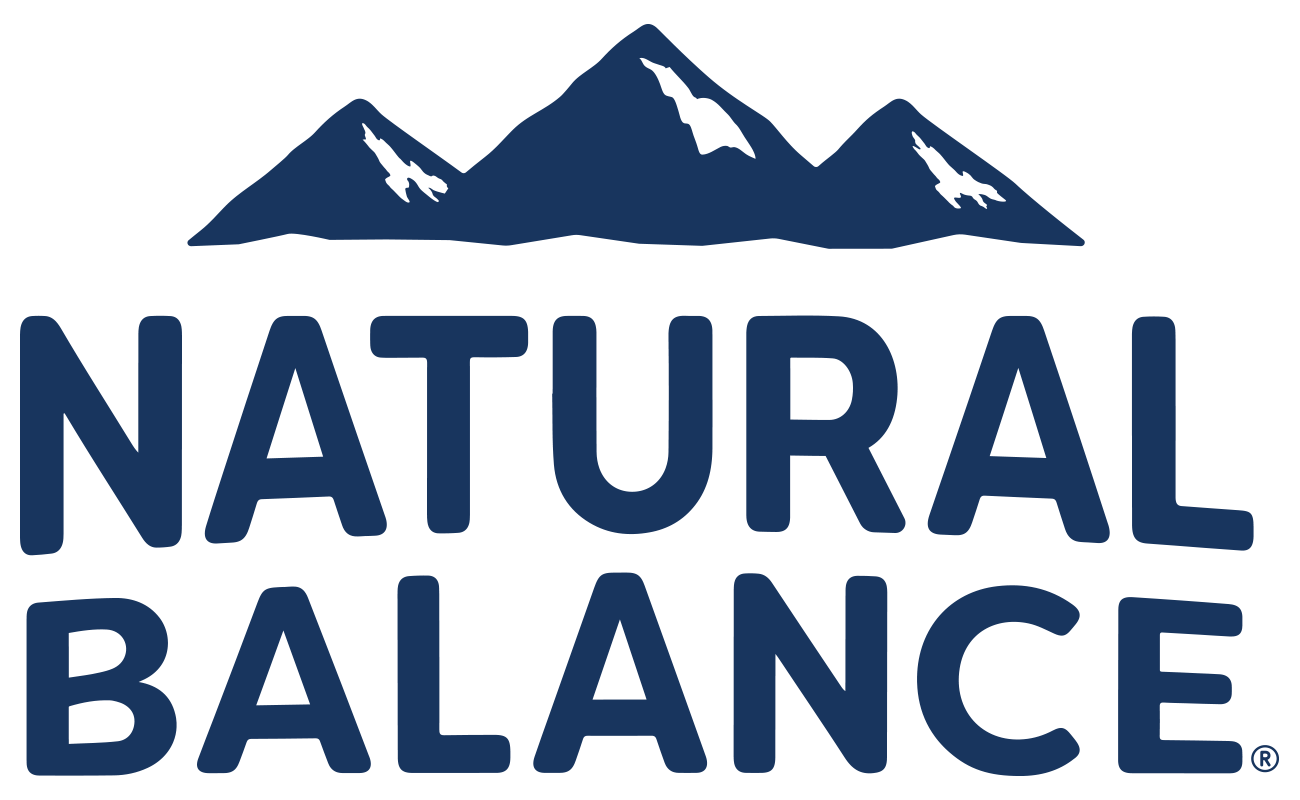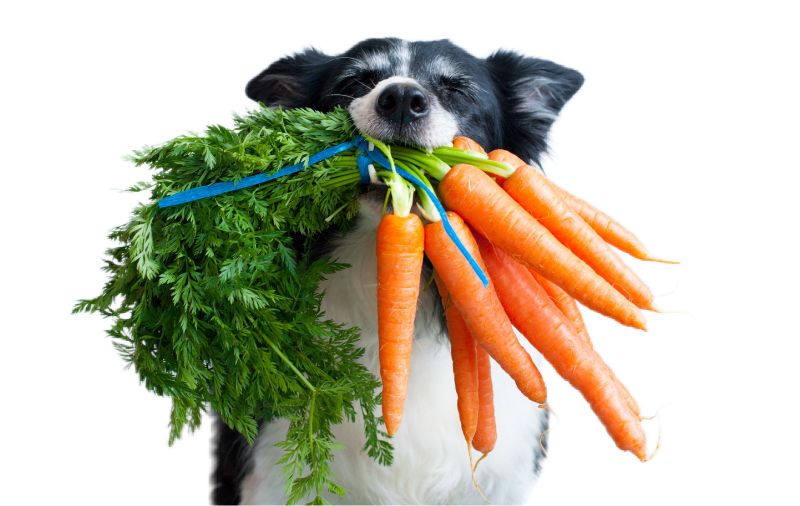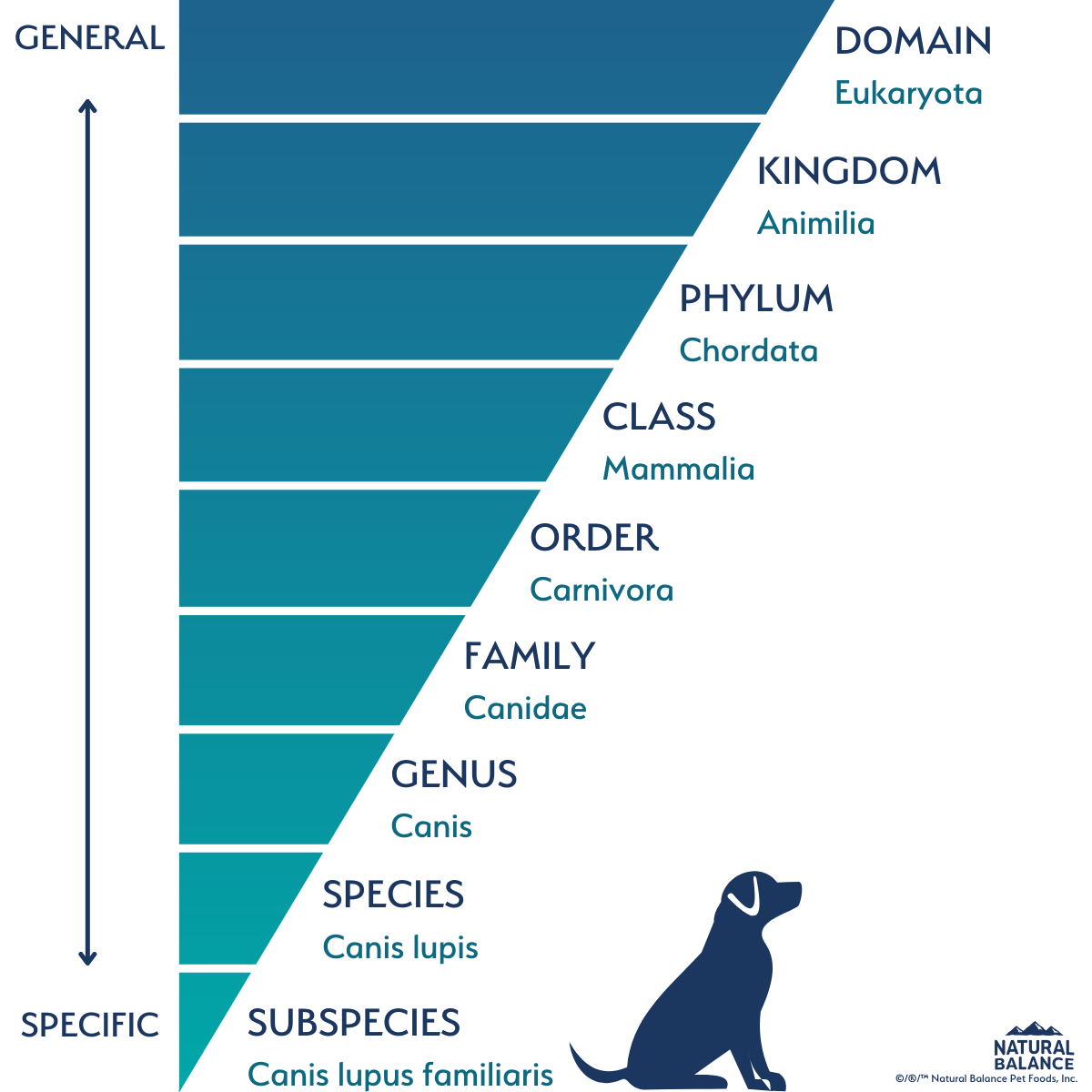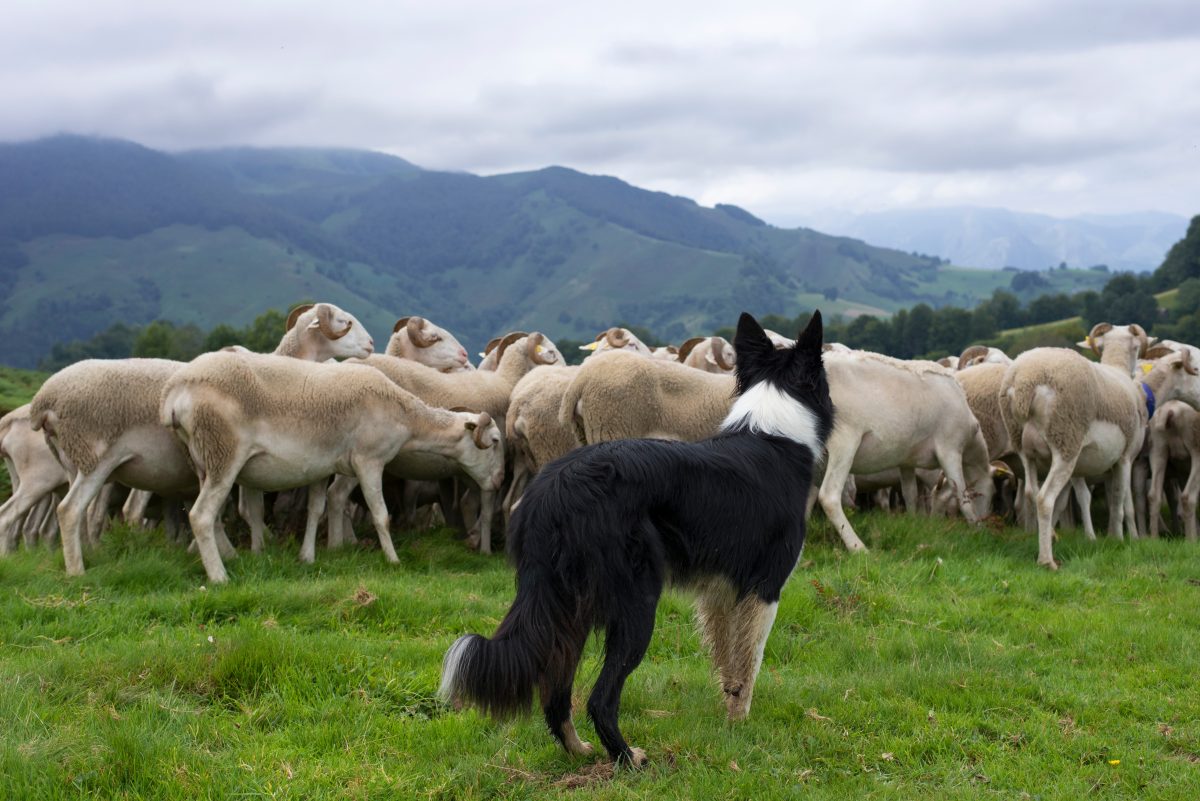There’s some confusion out there regarding whether dogs are carnivores or omnivores and if they can really live a well-balanced life on a vegetarian or vegan diet alone. Don’t worry, we’re here to unravel that confusion.
Let’s take a look at how dogs are classified within nature, how they evolved into omnivores, and explore vegetarian and vegan diets of the modern plant-powered pup.
Carnivore Confusion
One source of confusion around people thinking that dogs are carnivores has to do with how dogs are classified within the animal kingdom (see chart).
Put simply: some people confuse the taxonomical term “Carnivora” (a category of animals that dogs fall into) for the ecological term “carnivore.” This confusion tends to lead to the misconception that dogs are carnivores.
To be more specific, in terms of taxonomy (the scientific classification of organisms – animals, plants, humans…etc.), dogs are classified as members of the order Carnivora. Carnivora is a group of many different types of mammals – dogs, wolves, cats, bears, seals, and even the giant panda. Though most animals in this group eat mostly meat, not all do. Some eat both plants and meat, and a few, like giant pandas, mostly eat plants.
The order Carnivora was established in the book Systema Naturae, written by Carl Linneaus – the architect of modern taxonomy. The foundation on which today’s taxonomy was built, Systema Naturae was published in 1758 and has been widely accepted as the gold standard of taxonomy for well over 200 years.
Wolves and Dogs and Plants, Oh my!
Another misconception that leads people to believe dogs are carnivores has to do with wolves. The thought process goes something like: “dogs come from wolves, right? Wolves are carnivores, aren’t they? Then, how can dogs be omnivores?” The simple answer? Evolution.
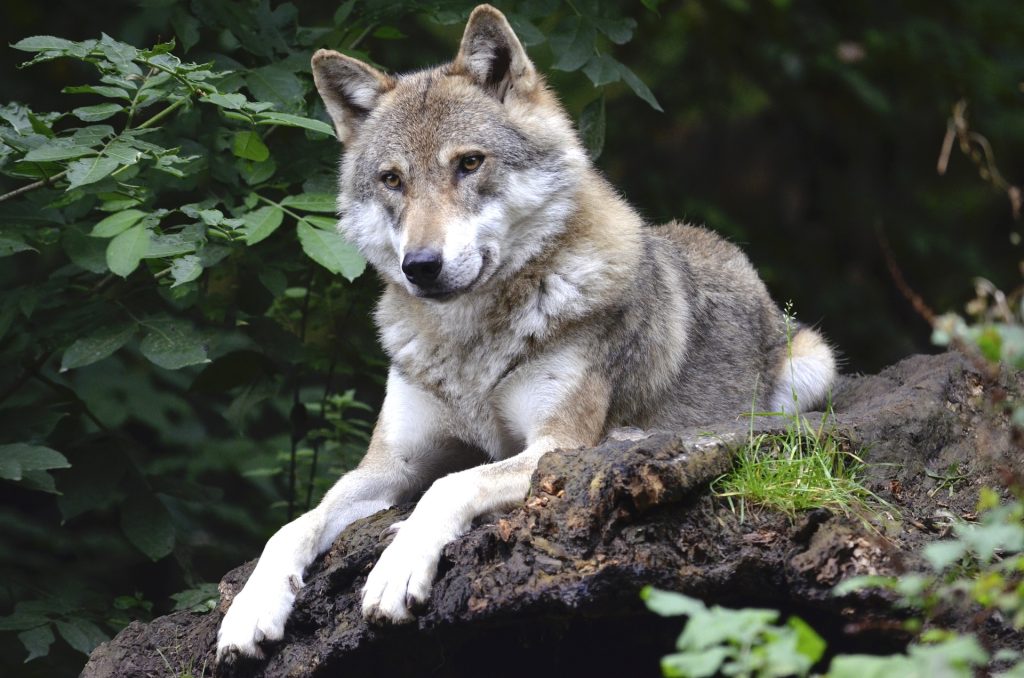
Gray Wolves, the relatives of today’s domesticated dogs, are classified as carnivores. Research studies have found that wolves’ diets consist primarily of meat with only very small amounts of plant material included. The reason for this is that their digestive systems are optimized for consuming and absorbing nutrients from meat, not plants.
On the other hand, we have domestic dogs; the furry, tail-wagging, meat and veggie-munching friends we all know and love. So, how did we get these furballs who love to mooch our people-food?
While domestic dogs share 99.9% of the same DNA as wolves, studies indicate that humans’ evolution from hunter gatherers to farmers combined with the domestication and evolution of wild canines led to today’s omnivorous dogs.
As humans settled down and began farming vegetables, fruits, and other plants, the dogs that became human companions began to benefit from eating these harvested food sources provided by humans. Over time, the digestive systems of domesticated dogs evolved to be able to efficiently metabolize starches. This allowed dogs to begin to be able to reap the benefits of the nutrients of farmed, plant-based carbohydrates and proteins.
Dogs and Veggies: Can Dogs Live Solely on Vegetarian and Vegan Diets?
Yes. Healthy, adult dogs (see life stage considerations below) who receive proper balance of essential nutrients from their food can thrive on a vegetarian or vegan diet.
Studies of the effects of vegetarian and vegan diets on dogs, ranging from elite athlete dogs to the happy dog next door (or in your own home), have found the same results. When dogs receive adequate levels of nutrients from their food, and their individual needs are met, they can live healthy lives on vegetarian or vegan diets.
Yes. Healthy, adult dogs who receive proper balance of essential nutrients from their food can thrive on a vegetarian or vegan diet.
What to Know before Putting your Dog on a Vegetarian or Vegan Diet
There is much more to vegetarian and vegan diets for dogs than simply feeding your dog common vegetables, grains, and fruits. If you are considering placing your dog on a vegetarian or vegan diet, be sure to first consult your dog’s veterinarian to make certain your furry friend is getting all the necessary nutrients needed to live a happy and healthy life.
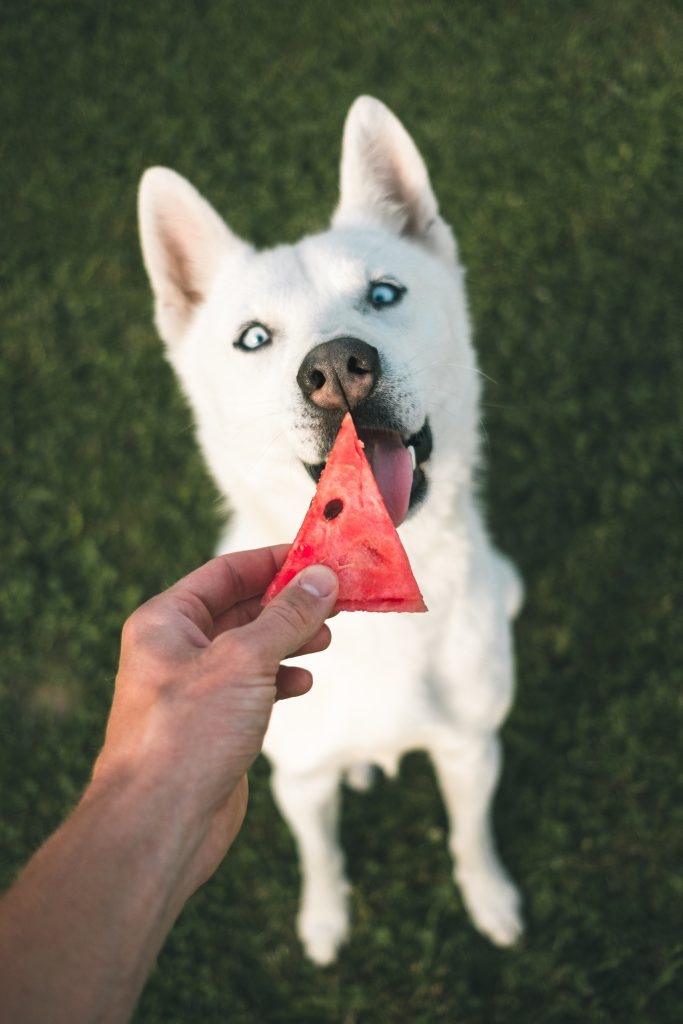
What‘s your dog’s life stage?
Consider your dog’s life stage (puppy, adult, senior). While vegetarian and vegan diets can be attractive options to dog owners, those who own puppies should hold off on these veggie diets.
Puppies require relatively high levels of protein and adequate sources of DHA/EPA for brain development. It is difficult to attain the proper levels of these nutrients through a vegetarian or vegan diet alone. This is why many veterinarians do not recommend vegetarian or vegan diets for growing puppies.
Vegetarian and vegan diets are great choices for healthy adult dogs. As these diets tend to be lower in fat and protein, they are good diets to help adult dogs maintain healthy weights.
Nutrients
Just as humans who choose to be vegetarian or vegan need to make certain they are getting adequate nutrients that are often found in meat (e.g. amino acids, Vitamin B12, Zinc…etc.), the same attention needs to be given to dogs and their food. Review your dog’s food ingredients and guaranteed analysis to be certain essential nutrients are provided and properly balanced.
Only consider vegetarian and vegan food recipes that are complete and balanced and meet Association of American Feed Control Officials (AAFCO) nutrition requirements. This will assure that the food contains all the essential nutrients (quality plant-based protein, fat, vitamins, minerals, and supplementation of any amino acids needed to reach adequate levels) to maintain proper health.
Be sure to first consult your dog’s veterinarian to make certain your furry friend is getting all the necessary nutrients…
Are Vegetarian and Vegan Diets Better than Meat-Based Diets?
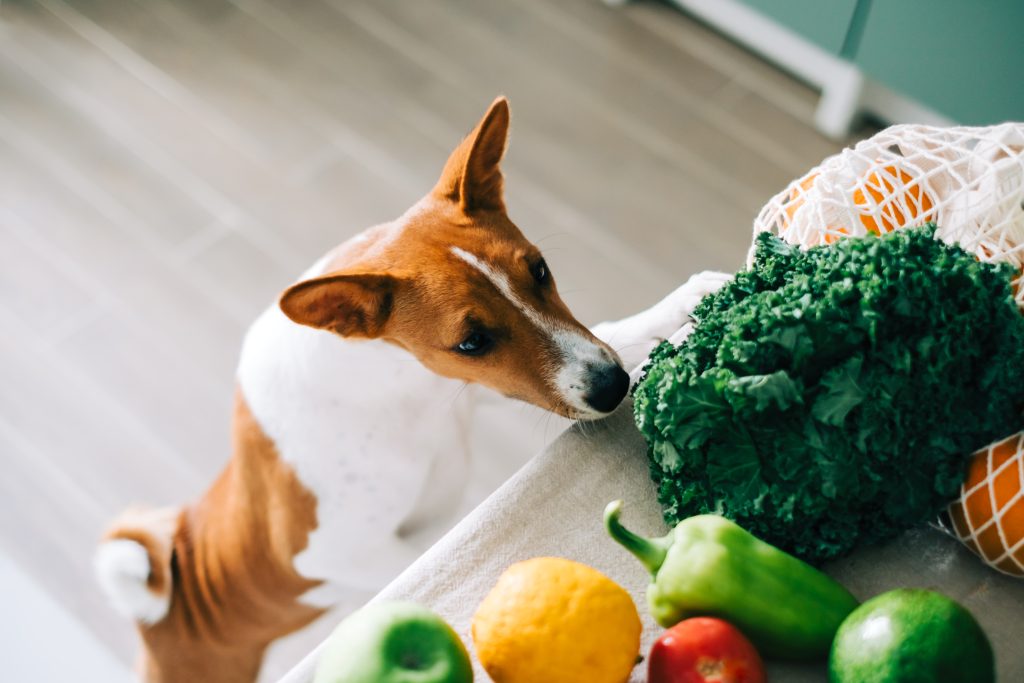
The debate continues! Currently, whether a vegetarian or vegan diet is nutritiously better than a diet that includes meat is a matter of perspective and opinion, nutritionally speaking.
There are many studies that have added to this debate. Some researchers argue that dogs should have a diet that includes meat, like the diet of their relatives; gray wolves. Meanwhile, other researchers challenge this opinion based on historical evidence of canines living long lives on entirely vegetarian diets. In any case, additional research still needs to be conducted to say if one diet is conclusively better than the other. Remember, various diets can work well for some dogs but not others – all dogs have their own individual needs.
What we do know is that a vegetarian or vegan diet that provides the proper nutrients is a safe and healthy option for adult dogs.
Many people who prefer to feed their dogs a vegetarian or vegan diet are they themselves vegetarian or vegan. The most common reasons people choose to adopt these diets are for the benefits for their health, the environment, and animal rights.
Food Sensitivities and Food Allergies: How can a Vegetarian or Vegan Diet Help?
If your dog has known food allergies or sensitivities that are triggered by a specific animal protein, a vegetarian or vegan diet could be something worth looking into. Transitioning such a pet from a meat-based diet to a vegetarian or vegan diet with a novel plant protein can be helpful in removing that trigger from your dog’s diet.
Learn more about food sensitivities, food allergies, and how to conduct a food elimination trial here.
A vegetarian or vegan diet with a novel, plant protein can be helpful…
Whether a vegetarian or vegan diet is right for your dog is dependent on many different factors. Remember, every dog has his/her own nutritional needs. Ultimately, your dog’s veterinarian will be able to tell you if a vegetarian or vegan diet is right for your four-legged friend.
If you have questions, click here to connect with our Customer Care team – a team made up entirely of Registered Veterinary Technicians who are ready to help you!
Natural Balance does not have any partnership with the sources cited in this blog.

